Integrative Therapy
By Dr. Johnathon Neda, Orange County Integrative Psychologist in Costa Mesa-Newport Beach.
What is Integrative Psychotherapy about?
Psychotherapy integration consolidates the effective ingredients and therapeutic actions across a diverse set of theoretical orientations and customizes therapy to the individuality of the client.

A New Therapy for Each Client
Working from an integrative approach means that I carefully draw from a wide-ranging toolbox and bring together different aspects of a variety of well-founded conventional and depth-oriented therapies and employ them for what they’re best at. Our level of therapeutic interaction will be attuned to the degree that you are willing and able to engage in deeper healing or change.
There are several dimensions at which people can feel freer in their lives. Within each of the various domains at which meaningful change can occur, the purpose is to help clients deeply discover their power to choose (within that particular level)—discerning and configuring their flexible movement between what is necessary and what is possible.
Integrative psychotherapies help foster new vitality by working with the following range of overlapping spheres:
Domains of Change
psychophysiological
Mind-Body Connection
Attachment/Relational
Changing Ingrained Patterns of Relational Style or Fostering Collaborative Behavior
behavioral
Instructional
Analytic
Associative-Interpretive Process
cognitive
Fostering a Range of Metacogntive Skills
Existential-Experiential
Deeper, Being-Level of Change
Critique of Mainstream Approaches
Broadly speaking, psychologists are employed in the role of working towards facilitating clients’ own understanding of themselves. However, the multidimensional or holistic way of understanding the human being is left out of many mainstream approaches to psychotherapy.
Medically oriented and programmatic approaches focus more on external forms of change. Now, it may be important to employ more prescriptive methods if that’s a facet of the client’s problems, needs, and preferences. For instance, Cognitive Behavior Therapy (CBT) serves the possibilities that thought restructuring and changing behaviors can open for us. So, one application of this therapeutic modality might include using CBT to treat a client’s anxiety by virtue of separating the cognitive distortion from the physiological response (e.g., restless feeling).
But, for deeper healing and lasting change to occur, what’s often required is working beyond the scope of thoughts and behaviors. Don’t get me wrong, I have respect for CBT where it’s necessary, I just don’t like it as much as insurance companies do.
The point here is that there’s also a time and a place to understand one’s predicament from a deeper and wider standpoint. Orange County Psychology is that place. In other words, it can be crucial to look past and move beyond a focus on symptom alleviation or symptom removal. That’s stated with the knowledge that the remission of symptoms is expected to occur (as it often does) with any good course of psychotherapy.
Furthermore, it’s not unusual that people often share the same list of symptoms but whose individual problems are entirely distinct in nature. This means that (when symptoms announce themselves) you can’t simply apply a one-size-fits-all approach (when treating a client’s symptomatology). To complicate this one step further, symptoms can also be seen as meaningful communications, as symbols, as a form of language. With that said, it may be important to reconsider the way we think and relate to our symptoms (e.g., as being important allies or messengers). Consider the psychoanalytic notion of the return of the repressed—the idea that symptoms (of conflict) keep coming back as a way to speak to us or through us.
For those of us who seek deeper levels of healing and lasting change, the time may be ripe to consider an alternative to the dominant mainstream approaches to psychotherapy. By mainstream, I mean those treatment modalities that adhere to a single school of thought or emphasize an antiquated medical-model to conceptualize a client’s given set of issues or problems.
Orange County Psychology provides an evidence-based practice of psychotherapy. In accordance with the American Psychological Association, we integrate “the best available research (with clinical expertise) in the context of patient characteristics, culture, and preferences” (2006, p. 273). We understand that complex problems require complex treatment.
In bringing this section to a close, it is important to note that the interrelated dimensions of change (mentioned above) co-exist with a systemic lens as many struggles are societally or culturally-based, while other difficulties stem from political issues.

